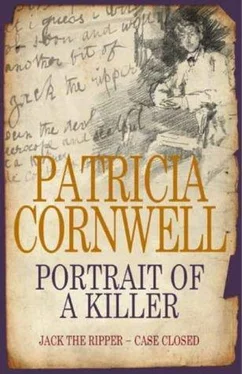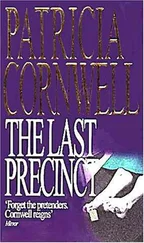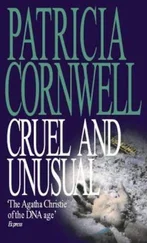Patricia Cornwell - Portrait Of A Killer - Jack The Ripper - Case Closed
Здесь есть возможность читать онлайн «Patricia Cornwell - Portrait Of A Killer - Jack The Ripper - Case Closed» весь текст электронной книги совершенно бесплатно (целиком полную версию без сокращений). В некоторых случаях можно слушать аудио, скачать через торрент в формате fb2 и присутствует краткое содержание. Жанр: Триллер, на английском языке. Описание произведения, (предисловие) а так же отзывы посетителей доступны на портале библиотеки ЛибКат.
- Название:Portrait Of A Killer: Jack The Ripper - Case Closed
- Автор:
- Жанр:
- Год:неизвестен
- ISBN:нет данных
- Рейтинг книги:5 / 5. Голосов: 1
-
Избранное:Добавить в избранное
- Отзывы:
-
Ваша оценка:
- 100
- 1
- 2
- 3
- 4
- 5
Portrait Of A Killer: Jack The Ripper - Case Closed: краткое содержание, описание и аннотация
Предлагаем к чтению аннотацию, описание, краткое содержание или предисловие (зависит от того, что написал сам автор книги «Portrait Of A Killer: Jack The Ripper - Case Closed»). Если вы не нашли необходимую информацию о книге — напишите в комментариях, мы постараемся отыскать её.
Portrait Of A Killer: Jack The Ripper - Case Closed — читать онлайн бесплатно полную книгу (весь текст) целиком
Ниже представлен текст книги, разбитый по страницам. Система сохранения места последней прочитанной страницы, позволяет с удобством читать онлайн бесплатно книгу «Portrait Of A Killer: Jack The Ripper - Case Closed», без необходимости каждый раз заново искать на чём Вы остановились. Поставьте закладку, и сможете в любой момент перейти на страницу, на которой закончили чтение.
Интервал:
Закладка:
It is possible that at some point and on some level Ellen suspected the truth about her husband. Despite her liberal stance in regard to women's suffrage, Ellen was weak in body and spirit. Her increasingly friable fabric may have been the result of a genetic trait she shared with her mother, but Ellen might also have been damaged by the torment her well-meaning father put her through because of his own desperate needs. She could not live up to his expectations. In her own eyes, she was a failure long before she and Walter Sickert met.
It was her nature to blame herself for whatever went wrong in the Cobden family or her marriage. No matter how often Sickert betrayed her, lied to her, abandoned her, made her feel unloved or invisible, she was loyal and would do anything she could for him. His happiness and health mattered to her, even after they were divorced and he married somebody else. Emotionally and financially, Sickert bled Ellen Cobden to death.
Not long before Ellen died, she wrote Janie, "If only you knew how much I long to go to sleep for good amp; all. I have been a troublesome sister in many ways. There is a strain of waywardness in my character which has neutralized other qualities which should have helped me thru life."
Janie didn't blame Ellen. She blamed Sickert. She had formed her own silent opinion of him early on, and began to encourage Ellen to go on trips and stay at the family estate in Sussex or at the Unwins' apartment at 10 Hereford Square, in London. Janie's biting observations about Sickert would not become blatant until Ellen had finally decided to separate from him in September 1896. Then Janie forcefully spoke her mind. She was infuriated by Sickert's ability to fool other people, particularly his artist friends. They "have quite an exalted idea of his character," she wrote to Ellen on July 24, 1899, days before Ellen and Sickert's divorce was final. "They cannot know what he really is as you do."
The ever-sensible Janie tried to convince her sister of the truth. "I fear to say that W.S. will never change his conduct of life - and with no guiding principles to keep his emotional nature straight he follows every whim that takes his fancy - you have tried so often to trust him, and he has deceived you times without number." But nothing dissuaded Ellen from loving Walter Sickert and believing he would change.
Ellen was a gentle, needy woman. Her childhood letters reveal a "daddy's girl" whose entire existence was about being his daughter. Ellen politicked, said and did the right things, was always appropriate, and carried on her father's missions as much as her limited strength and courage would allow. She could not see a stray or injured animal without trying ed f W to rescue it, and even as a small child she could not bear it when the lambs
were herded away for slaughter and the mother sheep bleated plaintively in the fields. Ellen had rabbits, dogs, cats, goldfinches, parakeets, ponies, donkeys - whatever came into her kind and sensitive hands.
She deeply cared about the poor and campaigned for free trade and home rule for Ireland almost as tirelessly as Janie did. Over time, Ellen became too worn down to accompany her words with her feet. While Janie would move on to become one of the most prominent women suffragettes in Great Britain, Ellen would drift deeper into depression, illness, and fatigue. Yet in the hundreds of surviving letters Ellen wrote during her relatively short life, she does not lament the social plight of the Unfortunates her husband brought into his studios to sketch and paint. She did nothing to better the lives of those women or their pitiful children.
The suffering remnants of humanity, adult or child, were for Sickert to use or abuse as he pleased. Perhaps his wife did not want to see the music-hall stars who posed for him in the upstairs studio at 54 Broadhurst Gardens or later in Chelsea. Perhaps she could not bear to see any child or childlike person her husband may have been interested in just a bit too much. Sickert watched little girls dance in sexually provocative ways in the music halls. He met them backstage. He painted them. Much later in life, when Sickert became obsessed with the actress Gwen Ffrangcon-Davies, he asked her in a letter if she had any photographs of herself "as a child."
Ellen and Sickert would have no children. There is no real evidence Sickert ever had children, although a story has persisted that he had an illegitimate son by Madame Villain, a French fishwife he stayed with in Dieppe after his separation from Ellen. In a letter, Sickert refers to Madame Villain as a mother figure who took care of him at a low point in his life. This does not mean he did not have sex with her, assuming he could. The supposed illegitimate child's name was Maurice, and Sickert would have nothing to do with him, so the story goes. Madame Villain was said to have had many children by many different men.
In a July 20,1902, letter from Jacques-Emile Blanche to novelist Andre Gide, Blanche says that Sickert's "life more and more defies everyone… This immoralist has ended up living alone in a large house in a working class suburb so that he doesn't have to do anything regarded as normal and can do what ever he likes whenever he likes. He does this without a sou having a legitimate family in England and a fishwife in Dieppe, with a swarm of children of provenances which are not possible to count."
The medical implications of Sickert's early surgeries would suggest he was unable to father children, but without medical records all one can do is to speculate. He would not have wanted to bother with children, even if he could have fathered them, and Ellen probably wouldn't have wanted them, either. She was almost thirty-seven and he was twenty-five when, after a four-year engagement, they married at the Marylebone Registry Office on June 10, 1885. He was starting his career and did not want children, says his nephew John Lessore, and Ellen was getting a bit old to have them.
She may also have been an advocate of the Purity League, which encouraged women not to engage in intercourse. Sex was what held women back and victimized them. Ellen and Janie were both ardent feminists, and Janie had no children, either, for reasons not clear. Both women were in agreement with the Malthusians, who used Thomas Malthus's essay on population as the basis for promoting contraception - even if the Reverend Malthus himself was actually opposed to contraception.
Ellen's diaries and correspondence reveal an intelligent, socially sophisticated, decent woman who was idealistic about love. She was also very careful. Or someone was. Over the thirty-four years she knew and loved Walter Sickert, she mentions him very few times. Janie mentions him more often, but not with the frequency one might expect from a thoughtful woman who should have cared about her sister's spouse. Gaps in the some four hundred existing letters and notes the sisters wrote to each other suggest that much of their correspondence has vanished. I found only thirty-some letters from 1880 to 1889, which is puzzling. During this decade Ellen got engaged to Sickert and they were married.
I found not a single allusion to Ellen's wedding, and based on the list of witnesses on the marriage certificate, no one in her family or Sickert's was present at the Registry Office, a very odd place for a first marriage in those days, especially when the bride was the daughter of Richard Cobden. There does not appear to be a single letter from Ellen when she was on her honeymoon in Europe, and in no archival source did I discover correspondence between Ellen and Sickert or between Ellen and Sickert's family or between Sickert and his family or between Sickert and the Cobden family.
If such letters existed, possibly they were destroyed or have been kept out of public circulation. I find it strange that a husband and wife apparently did not write or telegraph each other when they were apart, which was more often than not. I find it significant that the legacy-minded Ellen apparently did not preserve letters from Sickert when she believed in his genius and that he was destined to become an important artist.
Читать дальшеИнтервал:
Закладка:
Похожие книги на «Portrait Of A Killer: Jack The Ripper - Case Closed»
Представляем Вашему вниманию похожие книги на «Portrait Of A Killer: Jack The Ripper - Case Closed» списком для выбора. Мы отобрали схожую по названию и смыслу литературу в надежде предоставить читателям больше вариантов отыскать новые, интересные, ещё непрочитанные произведения.
Обсуждение, отзывы о книге «Portrait Of A Killer: Jack The Ripper - Case Closed» и просто собственные мнения читателей. Оставьте ваши комментарии, напишите, что Вы думаете о произведении, его смысле или главных героях. Укажите что конкретно понравилось, а что нет, и почему Вы так считаете.












